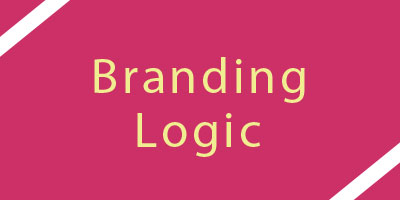How to manage a brand crisis? DON'T
DON'T try to manage a crisis that cries out 'YOU' are wrong.A brand loses a good lot of its good reputation in a crisis when its managers try it with uncharacteristic (uncharacteristic to the brand) approach hoping to settle it fine and quick and a brand loses the good chance to reinforce its brand values from a crisis by not taking charge of the situation admirably with the next steps.
A (brand) crisis continues to remain a blemish for a brand if not settled with convincing explanation.
.........................................
After the issue of Coke's bottling plant in Plachimada in Kerala depleting and contaminating the underground water in vast locations in the vicinity of its factory, the accusation of presence of pesticide residue in soft drinks including coke and Pepsi and a case of worms in an unit pack of Cadbury chocolate some years ago many brands have been in the news for wrong reasons but hardly did they slip into the kind of crisis some big brands have in the recent past.
Right now the one that is in the whirl of its own is the fairly popular politics and general interest magazine 'Outlook'. Considering the crass little piece it published so very carelessly I expected the management of the magazine to consciously avoid the urge to commit the common PR mistake; of nay saying and raising steadfast defenses rather revealingly. Brands, irrespective of size and stature seem to err invariably in their first response against complaints and accusations only to yield helplessly through the crisis gradually. In choosing to douse the outrage with an explanation more inept than the obnoxious piece Outlook was only replaying the PR blunder proven as such many times over. To claim to have put the piece in lighter vein and then to brazenly call it as satiric while sheepishly removing the offending piece from its website – is not just unwise, irresponsible too. Though the IAS officer gave Outlook two weeks to choose, detailed apology or the criminal suit, it complacently took hardly half of it only to take the wrong decision. The advice on such situation is simple; DON'T try to manage a crisis that cries out 'YOU' are wrong.
Professionally, the very true management doctrine; of the chance of wriggling out opportunity from adversity stands true for Outlook too for jumping out of the mess. Outlook should know it has no friends in its hour of inquisition, as cruel as the cracker it wrote. Only way it can save itself from the possible financial wreck, having pushed the IAS officer, by the grit of its managers' ego, to seek the decree from the court is to write an admirable piece of apology, though a little too late already. After all, admitting on offensive mistakes gracefully and with a sincere note of regret is a known good trait that would only endear a brand to its audience. In fact brand Outlook has more to gain if its managers would see the good branding opportunity in the mess. Much of Outlook's writing in politics ought to be aligned with its expected endeavor in contributing towards enhancing the maturity of politics and social thinking in India though the piece in question can be ignored as an exception. Outlook would also set a compelling precedence and caveat on such offences if they, those responsible for the nasty piece, would do a half day Swachh Bharat service around the office of the IAS officer in repentance, quite willingly. You do; you can demand – and opportunities for Outlook for aggressively recommending similar service, as part of its mission, for similar but oral offences which has long become daily shower by some folks in our politics, the people Outlook regularly writes about. Let me clarify, this advice is no satire. If Outlook would have an elaborate vision document what is suggested can well be a deliberate effort towards effectively curbing immature dialogues in our politics, needless to mention of immature writing in the media. That tells a lot about the competitive advantages companies can derive from developing professionally evolved practical vision and mission documents – beyond the useless four word statement – 'to be the best'. Does the response of Outlook to the due outrage triggered by its annoying piece support its larger objectives, in any way?
Infosys is another famous big brand which to the surprise of vast sets of its stakeholders sailed into a crisis in resetting its top management on the task of charging up its declining growth and competitiveness. The company steadfastly defended its inappropriate actions raking up a spate of bad press and its own misplaced anger to eventually throw a threat of whopping Rs.2000 cr law suit for defamation at a set of business media – ET, TOI and FE. Economic times refused to budge; Infosys quickly found proper solution for fixing its top management, the law suit was forgotten and the rain of repetitive articles in the papers stopped. Period.
Infosys story makes a good lesson for those who manage companies at the board level particularly independent directors and of course for the govt too on how to work with its own tools in dealing with misstepping companies. Read to know of the corporate governance issues in the crisis; ET tu Infosis.
Economic Times I thought was extremely lucky to have survived that threat turning into an inescapable court case and thus was spared of the pains of a potential crisis for itself writing hilariously about one. Infosys had an absolute chance to make the pink paper pay for just one of the 9 articles it ticked. That short article going by the title; "Ask Dr. D: I have got daddy issues!" dated 6 June 2014 which mocked the highly respected Sir NRN and his family in its entire length was many times more offending than the Outlook's demeaning piece on the IAS officer. Failure on the part of Press Council of India to act decisively on that breach tells of the futility of self regulation by the media in India.
Volvo the Swedish bus maker also demonstrated deficient approach in rising up to the crisis caused by the horrific wild fire quickly engulfing their buses on the run. Three ghastly mishaps all within months which burnt to death many passengers remain unexplained on the causes for over a year and half now. Volvo, in shielding itself, talked of its buses plying fine in Europe and elsewhere in the world for years without any issues on the design that can prove fatal even as the transport regulatory departments of the states and central govts blamed it for the faulty design amid speculations on other possible causes which included issues about drivers and design customization. The mishaps also shifted discussions to the deficiencies in emergency exit provisions and non-adherence to associated protocol. A brand loses a good lot of its good reputation in a crisis when its managers try it with uncharacteristic (uncharacteristic to the brand) approach hoping to settle it fine and quick and a brand loses the good chance to reinforce its brand values from a crisis by not taking charge of the situation admirably with the next steps. Volvo's mistake was the later. Volvo failed to take control of the situation by working with a set of practical on the ground initiatives in the hunt for causes and also to evolve suitable safety assurance initiatives which could have included a review of the design aspects too. Read the details of the arguments here; The high cost of low associated infrastructure.
A crisis continues to remain a blemish for a brand if not settled with convincing explanation. And with a product that is an innovation the inability to explain the negative aspects would only hurt the sales hard. Similar cases of fire on 'nano' which were left unexplained constrained its sales and severely it did since a set of other factors too contributed in causing the stiffness in sales. On puzzling issues that remain unexplained this quote in a comprehensive analysis of what restricted nano's sales explains it all; "In the middle of the night, if there is sound in the house, unless it is known that it is the cat, or the rat the fear of ghost lurks". Read the full analysis here … nano notes.
Maggi, one among the top consumer driven brands swiftly slid into an unexpected crisis and developed rapidly to become the mother of all crises. Maggi rolled it all quickly in becoming a comprehensive case study on crisis management, more clearly about how to avoid it, by the gross inappropriateness of its decisions. It tells of the risk in the kind of uncharacteristic disdain of early departmental notices and in ignoring to invest in settling such specific observations convincingly. It also tells of the huge risk in the inertia on product development in spite of lingering inherent issues and worse of being so influenced by the overwhelming success of the product. Maggi proves by the helplessness it has demonstrated, of the uselessness of the brand power when not leveraged to its true characteristics and potential in settling challenging situations. Maggi in fact hastened the edicts of many state governments by not taking the next steps quickly in taking good control of the brewing crisis which eventually also led to massive loss which surely could have been drastically cut with some applied thinking about ensuring some salvage.
Maggi could have averted the crisis if it had respected the early notices to it on the concern of excessive 'lead' and MSG by dealing proactively with the front line govt staff. As a responsible MNC Nestle should have respected the work of the govt department and demonstrated professional attitude in assuring elaborate process check at all its production units in keeping the situation under control and could have communicated with the consumers as well, right then, on the concerns and in depth on the efforts positively charging the brand. In fact the company should have considered the notice as providence and should have initiated special quality assurance programs at its factories with out wasting time and simultaneously recalling suspect packs from the market on its own upon appropriate sample lab checks. What is the use of labeling production batches if it doesn't help in situations like this? Maggi brought up the crisis on its own by uncharacteristically talking of 'your checks' and 'our checks' and talking to the consumers through the social media asking them to continue to buy saying it is tested and proven safe - disregarding the opposing claims of the govt. It also tried to blame the supply chain for the excessive 'lead' and MSG again being uncharacteristically dismissive of its responsibility on the raw material checks.
Maggi invited the ban on its own by shirking away from its responsibilities and thus ceded the control of the situation to the govts. The second big mistake which is only consequential to not taking steps early to make selective recall through structured sample checks is to make the absolute recall from all stock points, on being compelled by the govt. The third and the biggest mistake is to stop the production and supplies. Instead of fighting the ban at the court the company should have reasoned hard with the govts on the needlessness of the ban on the production and supplies duly explaining the massive financial wreck it would unnecessarily cause and thus should have kept up the supply of Maggi, however lean and of course with stocks produced to the stipulations on the standards.
Nestle seems to have been thoroughly beset by the situation that it is hardly looking at options. The kind of speed with which decisions are being taken seems to be driving it all wrong. Burning up of about 320 cr of edible material which is disqualified only for standard violation, and not all of it, surely doesn't come across as the most fit option to deal with the banned stock, definitely not considering the pollution it would cause. Surely, the mountain of stock which is tested and approved fit for human consumption in certain other nations and also in some of the tests done here in India should be fit for feeding cattle and other animals, appropriately mixed or processed, for good and without any fear and very much so considering the much higher tolerance limits of large animals. Read the relevant questions here; CSR in the disposal of banned Maggi packs.
Uber the app driven taxi service invited the ban in India for disregarding its primary responsibility and arguing out its case in a manner that is quite uncharacteristic of an MNC, which attitude, as reported in the media, the company seems to have maintained as a common brand attribute in many cities it operates in across the world. Lessons from Uber for MNCs (and also other large companies) are two. One, an MNC can hardly thrive in a fast developing country without self evolved superior responsibility standards on its operations. Two, an MNC which wishes to run its business by a certain attitude in disregard to the rules and ethical beliefs of that country can hardly expect to survive in that country. It was appalling that Uber drove up its business in Delhi to a certain time and volume without even declaring its office address.
Uber's argument of being a mere facilitator can in no way make it free from the absolute responsibility which is loudly implicit in its offer of providing car transport with the driver, legal arguments apart. By all professional standards Ubber was expected to ensure driver behavior beyond ensuring their identity credentials for recruitment. To throw the ball at the police on the responsibility does not absolve Uber of its responsibilities in any way. From the 'Uber case' taxi service providers should know that competition strategies in the business need to be essentially and largely evolved around the good character and conduct of their drivers.
The common cause in all the above crises happens to be flawed action or practice all turned into a crisis by the efforts of the companies in defending them. The advice therefore on managing a brand crisis is; DON'T try to manage. Take complete charge by quickly taking the next steps.
21 July 2015
Copyright: Adve Srinivasa Bhat, India.











